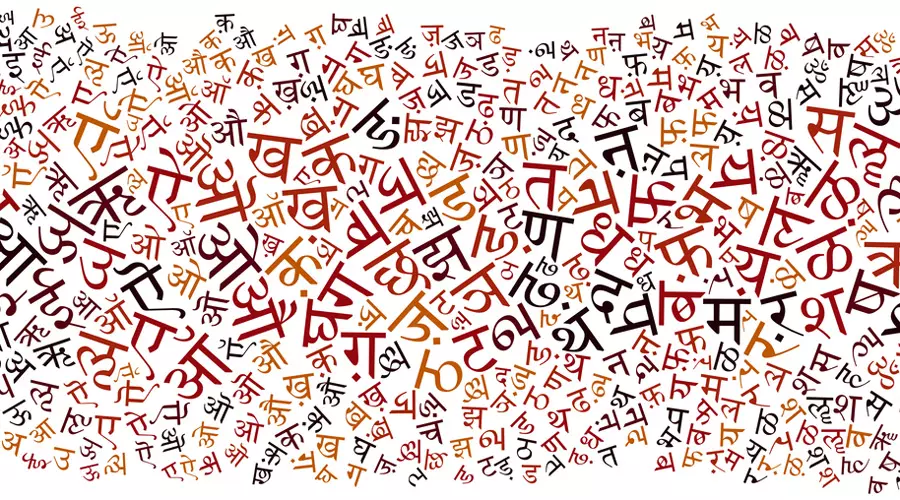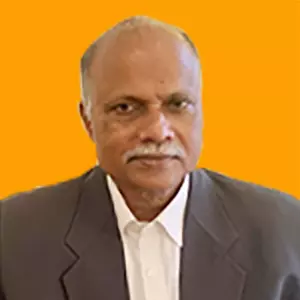
- Home
- India
- World
- Premium
- THE FEDERAL SPECIAL
- Analysis
- States
- Perspective
- Videos
- Sports
- Education
- Entertainment
- Elections
- Features
- Health
- Business
- Series
- In memoriam: Sheikh Mujibur Rahman
- Bishnoi's Men
- NEET TANGLE
- Economy Series
- Earth Day
- Kashmir’s Frozen Turbulence
- India@75
- The legend of Ramjanmabhoomi
- Liberalisation@30
- How to tame a dragon
- Celebrating biodiversity
- Farm Matters
- 50 days of solitude
- Bringing Migrants Home
- Budget 2020
- Jharkhand Votes
- The Federal Investigates
- The Federal Impact
- Vanishing Sand
- Gandhi @ 150
- Andhra Today
- Field report
- Operation Gulmarg
- Pandemic @1 Mn in India
- The Federal Year-End
- The Zero Year
- Science
- Brand studio
- Newsletter
- Elections 2024
- Events
- Home
- IndiaIndia
- World
- Analysis
- StatesStates
- PerspectivePerspective
- VideosVideos
- Sports
- Education
- Entertainment
- ElectionsElections
- Features
- Health
- BusinessBusiness
- Premium
- Loading...
Premium - Events

Across non-Hindi-speaking parts of the country, the attempt to impose a version of complex, Sanskritised Hindi has created resentment
Does an attempt to impose Hindi on non-Hindi speaking populations excite feelings that weaken the unity and integrity of the country or ill-will towards the government established by law in the country?
“I strongly denounce Union Home Minister Amit Shah’s audacious push for Hindi acceptance. It’s a blatant attempt to subjugate non-Hindi speakers. Tamil Nadu rejects any form of Hindi hegemony and imposition. Our language and heritage define us — we won’t be enslaved by Hindi!” That was Tamil Nadu chief minister MK Stalin’s response to Union Home Minister Amit Shah’s statement on August 5 at a meeting of the Committee of Parliament on Official Languages that Hindi must be accepted as the official language without opposition, even if the pace of acceptance is slow.
A week later, the Home Minister introduced three bills to replace the Indian Penal Code, the Criminal Procedure Code and the Indian Evidence Act. The replacement laws are proposed to be called, respectively, the Bharatiya Nyaya Sanhita, the Bharatiya Nagarik Suraksha Sanhita and the Bharatiya Sakshya.
Also read: 'Decolonisation' bills hint at 'recolonisation': TN CM Stalin on new criminal laws
Vociferous protest
This elicited another strong protest from the Tamil Nadu chief minister, by way of an elaborate tweet: “#Recolonisation in the name of #Decolonisation! The audacious attempt by the Union BJP Government to tamper with the essence of India’s diversity through a sweeping overhaul — Bharatiya Nyaya Sanhita, Bharatiya Nagarik Suraksha Sanhita, and Bharatiya Sakshya Bill — reeks of linguistic imperialism. This is an affront to the very foundation of #INDIA’s unity. BJP and Prime Minister Modi have no moral right to even utter the word #Tamil hereafter. In the crucible of history, Tamil Nadu and DMK have emerged as the vanguards against such oppressive overtones. From the Anti-hindi agitations to safeguarding our linguistic identity, we have withstood the storm of #HindiImposition before, and we shall do it again, with unyielding determination. The fire of resistance against #HindiColonialism is ablaze once more. The BJP’s audacious bid to supplant our identity with Hindi will be opposed resolutely. #StopHindiImposition.”
Stalin was not alone in articulating such sentiments. Across non-Hindi speaking parts of the country, the attempt to impose a version of complex, Sanskritised Hindi, has created resentment. In the south of the country, the Home Minister’s actions and utterances are perceived as an attempt to establish dominance of Hindi-speaking North India over non-Hindi-speaking South India. This serves to corrode the nation’s unity and integrity, not to strengthen bonds of togetherness and cohesion.
Needless division
The Home Minister is guilty not just of creating needless division on the basis of language but also of violating the law. The new bills, whose names are in Sanskritised Hindi, violate the 1963 Official Language Act, as amended in 1967, and Article 348 of the Constitution.
Article 348 reads as follows: Language to be used in the Supreme Court and in the High Courts and for Acts, Bills, etc. — (1) Notwithstanding anything in the foregoing provisions of this Part, until Parliament by law otherwise provides — (a) all proceedings in the Supreme Court and in every High Court, (b) the authoritative texts — (i) of all Bills to be introduced or amendments thereto to be moved in either House of Parliament or in the House or either House of the Legislature of a State, (ii) of all Acts passed by Parliament or the Legislature of a State and of all Ordinances promulgated by the President or the Governor *** of a State, and (iii) of all orders, rules, regulations and bye-laws issued under this Constitution or under any law made by Parliament or the Legislature of a State, shall be in the English language.
Clause (2) of the Article authorises use of the state’s language in the high court of the state, with the authorisation of the Governor, acting with the consent of the President.
The Hindi nomenclature of the new bills fall foul of Article 348.
Also read: Stalin recalls 1965 protests, tells Amit Shah: ‘We won't be enslaved by Hindi’
Official language
True, focusing on select bits and pieces of the Constitution might give the impression that Hindi is indeed the official language of India. After all, Article 343 (1) says: The official language of the Union shall be Hindi in Devanagari script. Many stop there. But Article 343 does not end there. Article 343(2) then clarifies: Notwithstanding anything in clause (1), for a period of fifteen years from the commencement of this Constitution, the English language shall continue to be used for all the official purposes of the Union for which it was being used immediately before such commencement... Then, Article 343 (3) says: Notwithstanding anything in this article, Parliament may by law provide for the use, after the said period of fifteen years, of — (a) the English language, or (b) the Devanagari form of numerals, for such purposes as may be specified in the law.
While passing the Official Language Act of 1963, Nehru made the assurance to the House that English would continue as an official language as long as non-Hindi-speaking states wanted it to be the official language. After Nehru’s death, when strong Hindi proponents Shastri, Morarji Desai and Gulzarilal Nanda dominated the Congress and the government, apprehension grew that Hindi would be imposed on the South.
Anti-Hindi stir
A strong anti-Hindi-imposition agitation raged across Tamil Nadu, demolished the Congress in the state, killed many people — 80 is the official tally, 500, according to informal estimates — and finally forced Shastri to broadcast over radio that Hindi would not be imposed and that English would continue as the official language, will be the language of communication between the Centre and the states and among states, and that English would continue to be the language of examinations to select central government staff.
When the time came to give a legal basis for the prime minister’s assurance, Hindi advocates resisted the move. Shastri died and Indira Gandhi became the prime minister. The Congress majority was seriously dented in the 1967 general elections. The Jana Sangh, forerunner of the BJP, used the pro-Hindi agitation in north India to attack the Congress, and weaken the party. The Indira Gandhi government amended the 1963 Official Language Act in 1967, to indefinitely extend the use of English, along with Hindi, as an official language.
Sangh stamp
Amit Shah continues the old Jana Sangh tradition of treating Hindu-Hindi-Hindustan as a single continuum. That slogan carries within it the derogation of those who are not Hindus or are not native speakers of Hindi. This fuels resentment among the people who see their worth as citizens coming under attack, and works to create feelings inimical to the unity and integrity of the country.
Also read: Stalin slams Hindi 'imposition' by public sector company New India Assurance
There is no need to impose Hindi. Government action to support Hindi should take the form of funding extensive translation of works in other languages, foreign as well as Indian, technical, scientific as well as literary, into Hindi, and from Hindi to other Indian languages, including into English. How many Hindi speakers are familiar with the gems of literature in Oriya, Marathi, Tamil, Kannada or Malayalam? Hindi films do a great job of popularising Hindi across India — the version spoken by ordinary people and those in the army, the faujis, not the Sanskrit-heavy, synthetic version favoured by boors who believe Sanskrit was the language of ancient India.
Celebrate languages
Sanskrit was the language of the elite, of scholarship. Minor characters in Sanskrit plays spoke prakrit, not Sanskrit, because ordinary people spoke assorted prakrits. Today’s North Indian languages, including Hindi, are derived from these prakrits, not from Sanskrit. Popular languages evolve from tongues spoken by the masses, not from any language mastered only by a tiny elite.
And Sanskrit was a language of scholarship across India. Dignaga, the Buddhist philosopher, hailed from around Kanchipuram, and Sankara, the most successful advocate of Advaita, was born in Kaladi, south of Kochi, both parts of the then Tamizhakam.
Nor were the prakrits undeveloped, primitive tongues. The oldest collection of stories in India, if not the world, was the Brihat Katha, written in Paisachi, the prakrit prevalent in what today is Bengal. Brihat Katha does not survive, but translated excerpts have been compiled as the Katha Saritsagaram.
Also read: Govt says sedition out, but new Bill adds more teeth to draconian law
Any people proud of their history and culture would celebrate their languages, not seek to suppress some of them for the greater glory of one of them. The celebration of synthetic Hindi is, we should note, suppressing Bhojpuri, Mythili, Marwari and Pahari for example, all of them modern derivatives of assorted Prakrits that deserve to be encouraged to flourish and develop, their oral traditions investigated and recorded, instead of being smothered under the nationalist weight of newcomer Hindi.
Celebration of unity in diversity should apply to India’s languages, as to other aspects of India’s national being, including its many faiths, regions, cuisines, dances, and styles of music and musical instruments.
(TK Arun is a senior journalist based in Delhi)
(The Federal seeks to present views and opinions from all sides of the spectrum. The information, ideas or opinions in the articles are of the author and do not necessarily reflect the views of The Federal)


